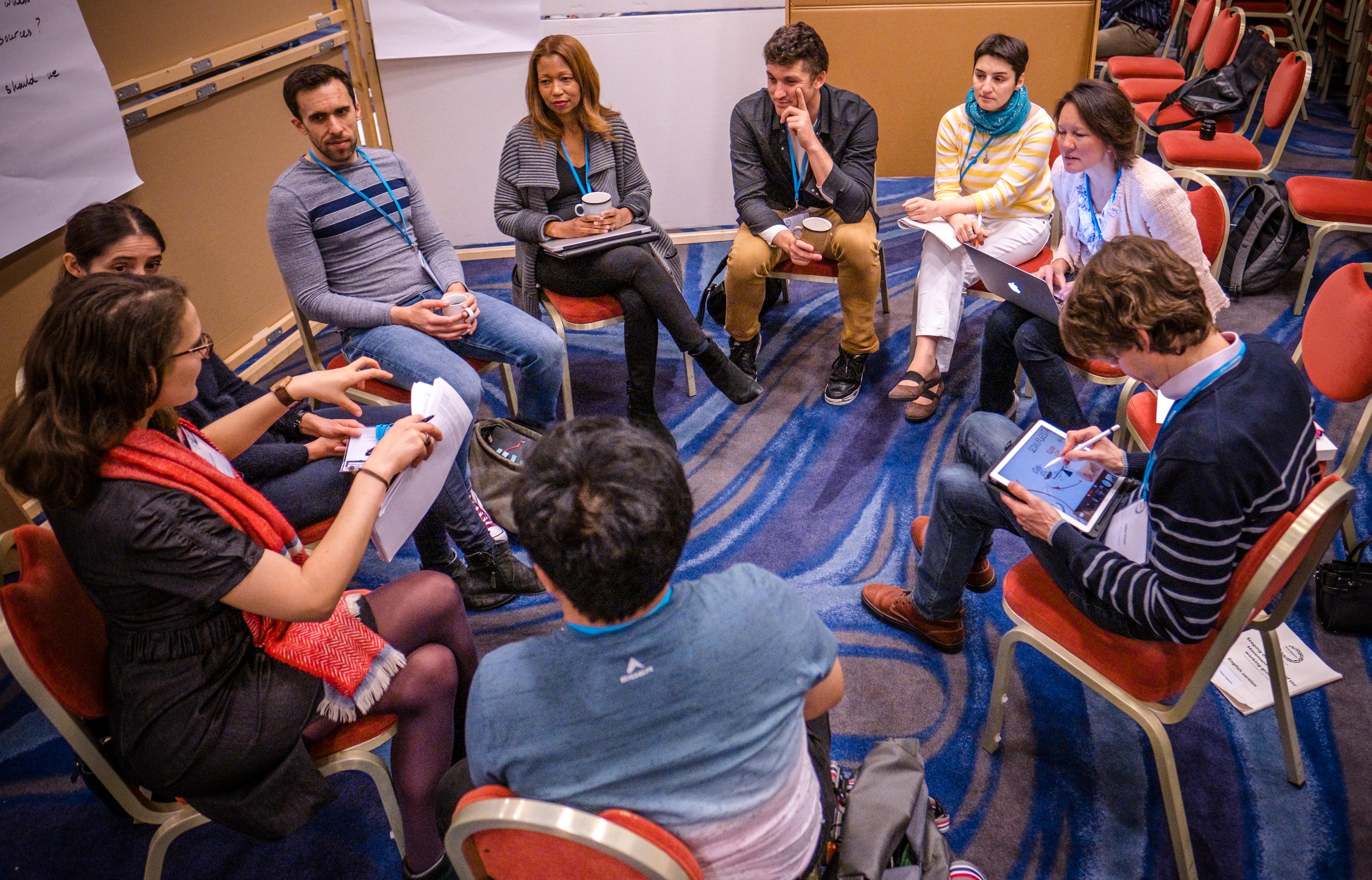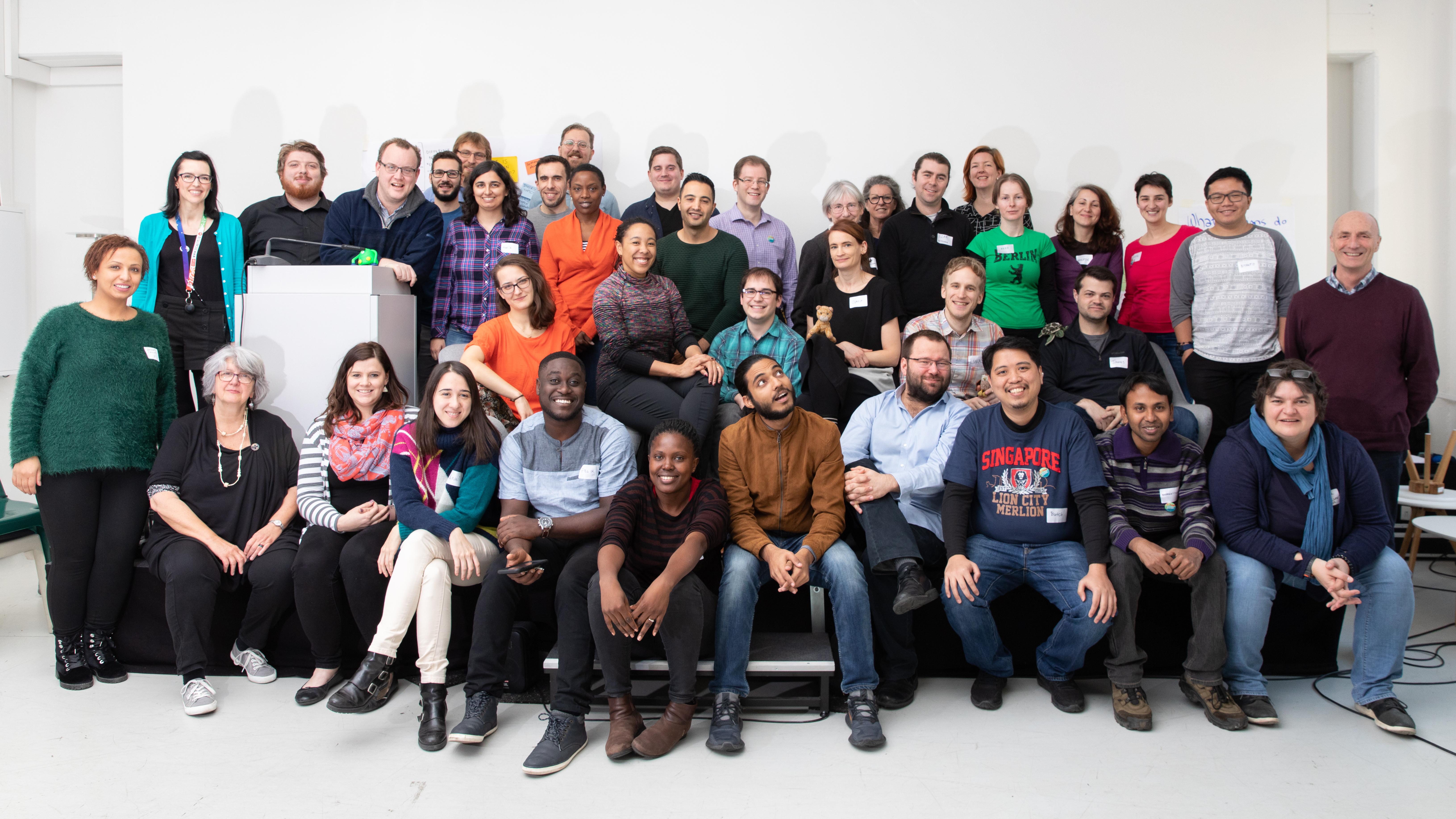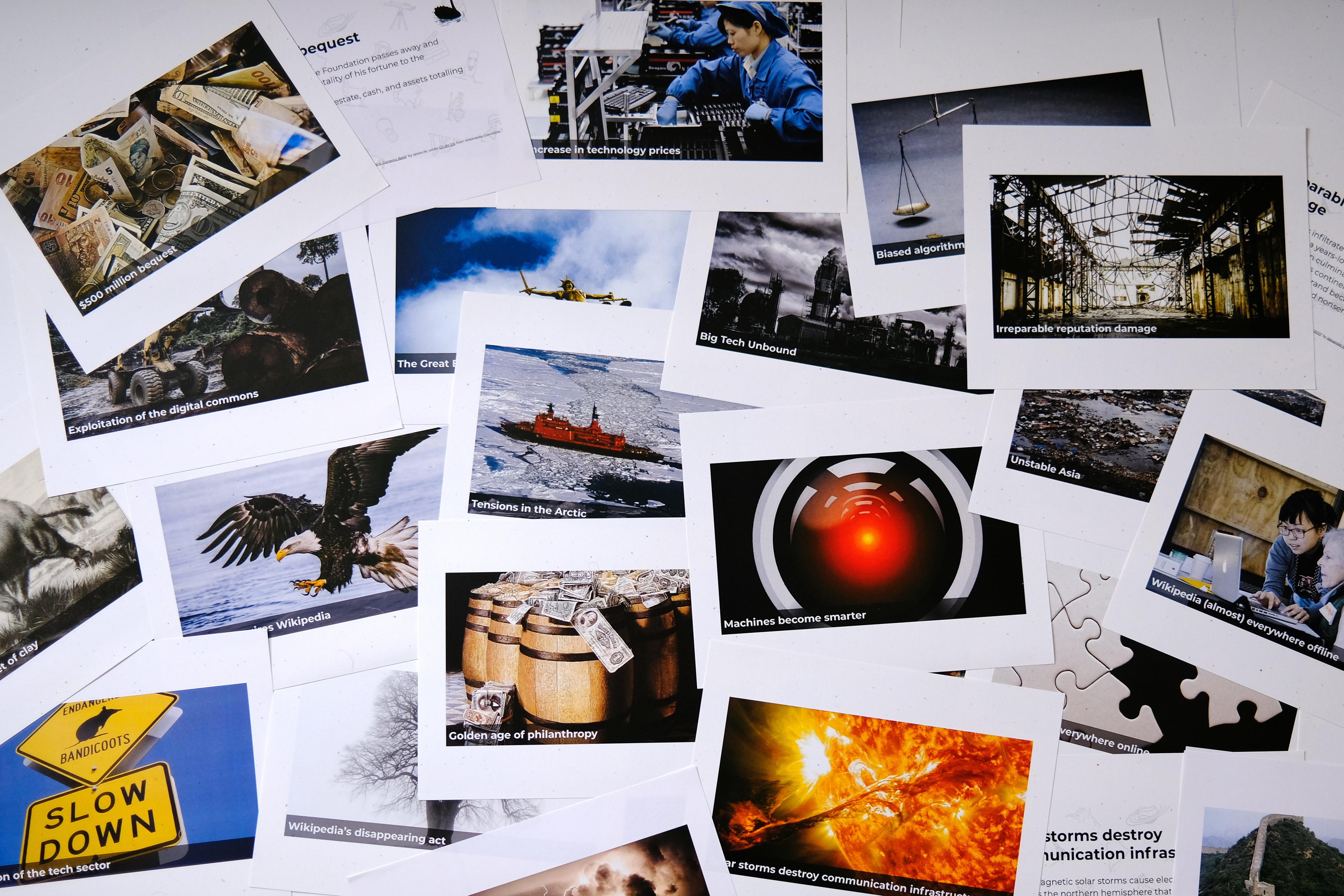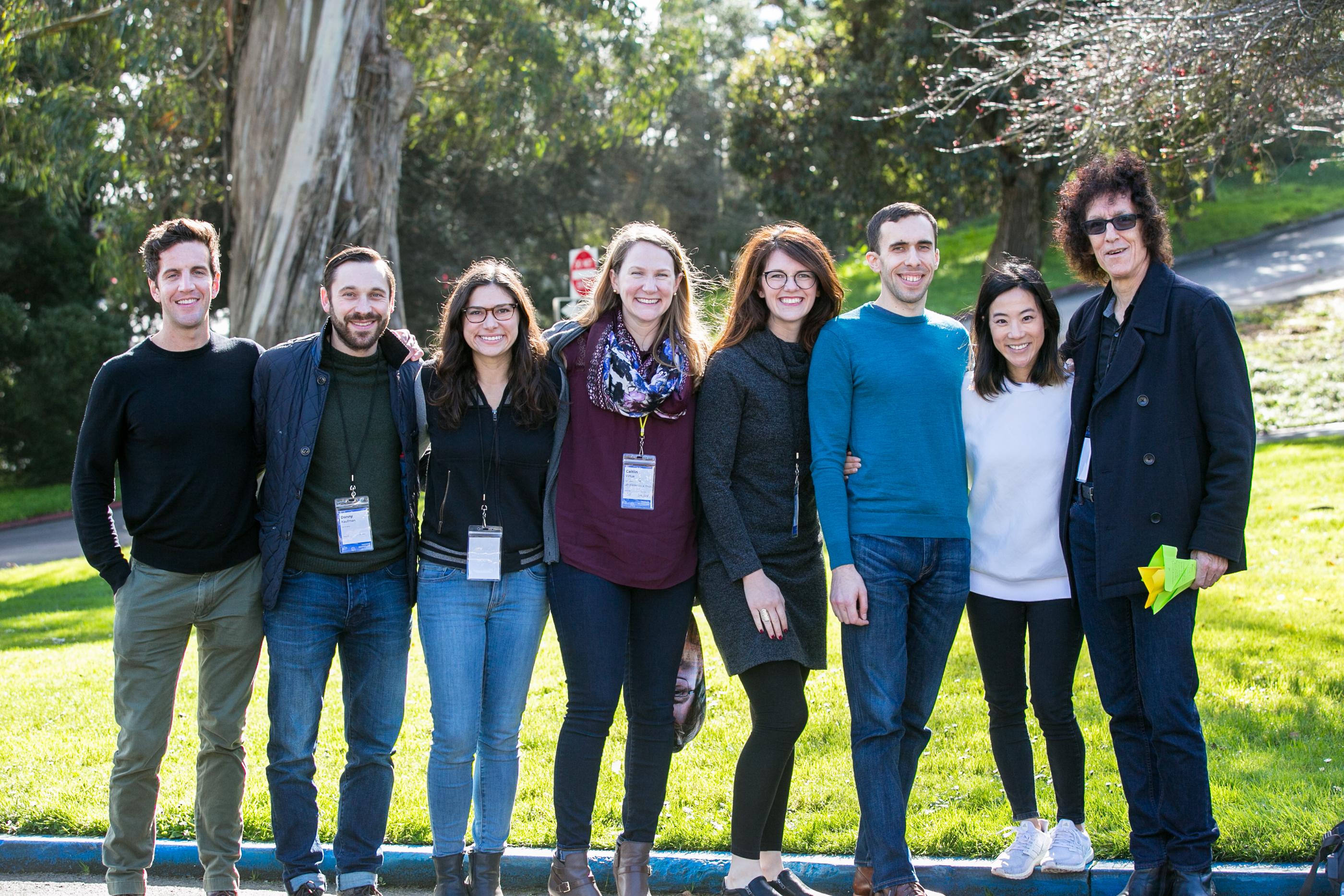I previously led special projects for the Wikimedia Foundation’s Chief Advancement Officer, serving as the department’s de facto chief of staff. In this role, I was leading the organization’s future thinking towards resilience in a changing world, navigating unknowns in technology, policy, industry, society, and climate, notably through scenario planning.
I led Revenue Strategy research and the development of new revenue models for financial growth and long-term sustainability. I also provided expertise and guidance to other teams in the Advancement department, notably the Major Gifts team.
Revenue Strategy

Jason Krüger for Wikimedia Deutschland e.V. on Wikimedia Commons // CC BY-SA 4.0.
The importance of Revenue Strategy for the Wikimedia Foundation lies in two main factors: the uncertain future facing us, which might endanger existing revenue sources, and the impetus to grow, mandated by the ambitions of the Wikimedia movement.
Revenue strategy for the Foundation
The Strategic direction for 2030, whose development I led in 2017, set out ambitious aspirations for the Wikimedia movement, aspirations unattainable with the resources then at our disposal. In 2018 the Wikimedia Foundation’s Board of Trustees, recognizing this gap, mandated the Foundation to “invest the resources necessary to support the growth and evolution required for the next chapter of Wikimedia’s future.”[1]
The Board specifically recommended that the Foundation “support the fundraising team in raising additional funds beyond what is called for in the annual plan to prepare us for future growth,” “increase revenue as needed to support investment and growth,” and “explore alternative revenue streams for the Foundation and movement.”[2]
Following this directive, I started working with Lisa Seitz-Gruwell, the Foundation’s Chief Advancement Officer, as well as Jeremy Gregg, to explore new revenue streams for the Wikimedia Foundation. In addition to specific proposals, I also published a strategic summary of my reflection.
In 2022, I led a new Revenue Strategy process to take stock of what the organization had accomplished since 2018, and determine how to develop resources to support the ambitions of the Wikimedia movement.
Revenue Streams for the Movement

Meeting of three strategy working groups in Berlin in 2019: Roles & Responsibilities, Resource Allocation, and Revenue Streams. (Martin Kraft for Wikimedia Deutschland e.V. on Wikimedia Commons // CC BY-SA 4.0.)
In 2018–2020, I worked with Megan Hernandez, the Foundation’s VP of Advancement, to develop recommendations as part of the movement-focused Revenue Streams working group. The group was one of nine, bringing together Wikimedians (volunteers, affiliates, staff) who worked for two years to establish recommendations on how to move towards the 2030 strategic direction. Some of the recommendations of the Revenue Streams working group included: expanding global fundraising; diversifying revenue channels; and monetizing the Wikimedia API, which led to the development of the Wikimedia Enterprise service.
I was also part of the final group of “integrators” who brought together all the recommendations across working groups, integrated the feedback received across communities, and synthesized them into a coherent whole of ten consolidated recommendations in March 2020.
Long-term thinking

NASA Goddard Space Flight Center on Wikimedia Commons // CC BY 2.0.
Revenue Strategy goes beyond medium-term plans for new revenue streams. A central part of my work is to think about the longer term and the trends, risks, and unknowns that might have an impact on the organization.
I do this work not just by reading across many fields, but also by using imagination and making connections across disciplines. Human systems are deeply interconnected, and taking a wider view avoids tunnel vision, while imagination avoids focusing only on known elements. Through my efforts, Advancement staff at the Foundation have become better prepared to face the unexpected.
For example, in 2019 I produced three Scenarios for 2031 to imagine possible futures for the world and Wikimedia’s place in it. The scenarios all contained both favorable and unfavorable story elements, to ensure the people engaging with them wouldn’t be tempted to pick one as the future they favored. I used the scenarios to spark discussions and shift conversations from day-to-day concerns and busywork to longer-term strategic thinking.
In a workshop with Advancement staff, I created cards, representing story elements of the scenarios, to encourage long-term thinking while tapping into the participants’ own expertise and imagination. “Black swan” cards introduced halfway through the activity forced the participants to contend with unpredictable, “wild card” events and how their draft strategies would fare in those new circumstances.

The workshop with Advancement staff relied on full-page cards representing story elements from the 2031 scenarios.
In February 2021, I led a similar workshop with Advancement staff, painting a picture of the world in 2032 and the Wikimedia movement’s place in it. I repeated the workshop with staff from across the organization during our virtual all-staff conference in June 2021. In 2022, the basis of my new Revenue Strategy process was a scenario for the Wikimedia Movement in 2033.
Future-oriented thinking helps build resilience by shifting the perspective of the organization’s leaders to the long view, and leading them to imagine the future consequences of current events and choices they make today.
Major Gifts & Endowment

In my previous role, I also worked with other teams in Advancement, for example providing expertise and guidance to the Strategic Partnerships team, and the Major Gifts, Foundations, and Endowment team.
I supported the Community & Grantmaking Committee of the Endowment Board of Directors, and prevously staffed their Investment Committee. I also crafted proposals tailored to high-net-worth prospects and created a modular prospectus aimed for a wider audience. In 2019, I co-wrote the Wikimedia Foundation’s application for the 100&Change challenge,[3] including what would become my essay on the Stakes of Knowledge.
In 2022, I produced a research report about the future of the Endowment, and guided the Endowment Board and its Community & Grantmaking Committee through their strategy discussions, notably around what kind of work they might decide to fund.
